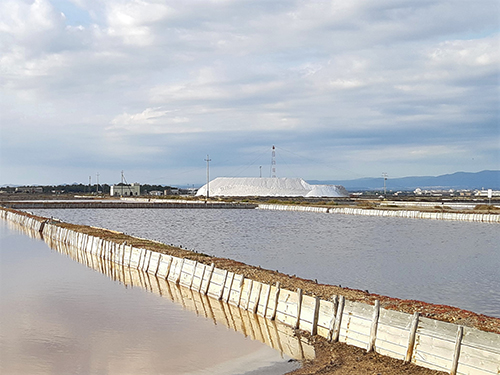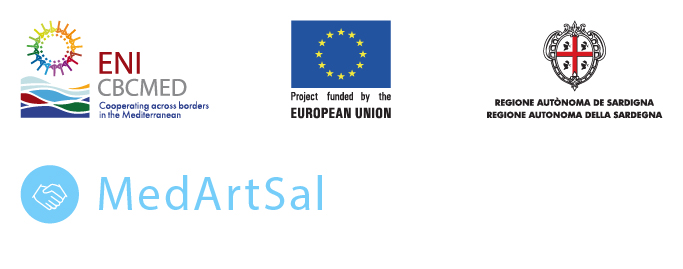





Sustainable Development Goals:
 |
 |
Salinas across Mediterranean are today facing many pressures due to social values change and economic stresses; the market of their products is subject to strong competition from cheaper land-produced salt and the world trade. Faced with the need to be economically viable, salinas are confronted with the choice of closing, industrializing the production or changing the business orientation towards sustainable tourism and new artisanal products, already successfully experienced.
 Addressing common challenges, four Mediterranean regions (Italy, Spain, Lebanon and Tunisia), will promote the development of a sustainable and adaptable management model fostering the territorial valorization of artisanal salinas.
Addressing common challenges, four Mediterranean regions (Italy, Spain, Lebanon and Tunisia), will promote the development of a sustainable and adaptable management model fostering the territorial valorization of artisanal salinas.
MedArtSal model will represent an innovative solution and will Withinprovide innovative sustainable actions for salinas, providing a sound operational support and specific guidance on the best development strategy compared to the features and needs of the area. The model is made up of the combination of good practices (e.g. technologies, products), commerce (e.g. product selling, marketing), biodiversity and ecosystem service preservation, as well as other services (e.g. tourism).
As reported in many works, almost 170 salinas (of which 90 still working) are recognizable today in 18 Med countries (EUMC and MPCs). A sound cross border cooperation among PPs is expected to have a great impact on the number of artisanal salinas that could be approached and interested in the project and in the application of the MedArtSal model in view of increase local economic development through and thanks MedArtSal clusters and networks. A sustainable production of salt may deeply stimulate the development of other sectors (business, tourism, and environment), at local, national and Mediterranean levels.
As a direct result, the project aims to engage the cooperation between several private-public actors and communities, composed by saltworkers, SMEs, economic operators, policy makers, Universities, Research Centers, governmental bodies, and civil society in the Mediterranean.
MEDSEA is responsable for the implementation of subgrants in saltpans of the partners' countries. Call for sub-grants
Goals
• Identify those areas susceptible to economic and environmental challenges for the geographical distribution, socio-economic value and biodiversity significance.
• Define sustainable solutions, promoting management policies or procedures throughout the determination of critical elements for salinas development
• Develop and test tailored management solutions in several case studies and pilot actions
• Foster collaborations on B2C (resident and tourists) and B2B (GDO and HO.RE.CA) markets, promoting a SME cluster per participating country
• Build network among local producers and businesses to develop public-private cooperation
Final beneficiaries
• Artisanal salinas/Artisanal Salt producers/SMEs
• National, Regional, local Institutions
• Universities/Research centers
• Chamber of Commerce, trade associations, NGOs
Partners
• CUEIM – University Consortium for Industrial and Managerial Economics (Italy)
• Mediterranean Sea and Coast Foundation (Italy)
• Association for the Development of Rural Capacities (Lebanon)
• International Union for Conservation of Nature, Centre for Mediterranean Cooperation (Spain)
• University of Cádiz (Spain)
• Tuniso-Italian Chamber of Commerce and Industry (Tunisia)
• Fair Trade Lebanon (Lebanon)
• Saida Society (Tunisia)
Project Budget: 3.299.001€
MEDSEA Budget: 325.725 €
EU Programme: Eni CBC-MED
Duration: 01/11/2019 - 31/10/2022 (36 months)
Project website: www.enicbcmed.eu/projects/medartsal